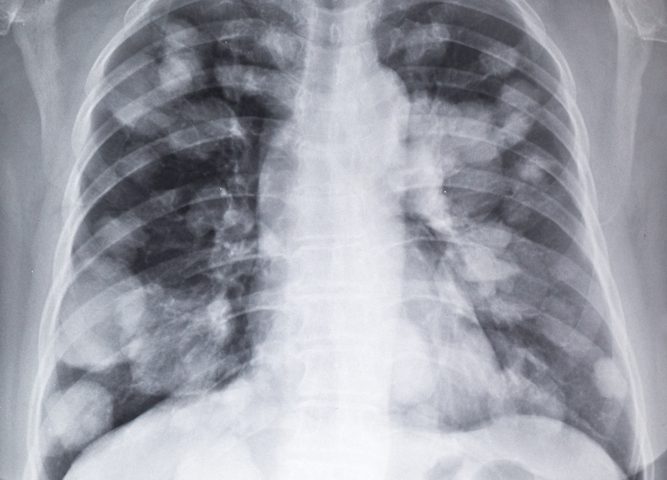An early benefit assessment indicated that while Portrazza (necitumumab) increases overall patient survival, additional negative effects reduce the impact of this outcome and result in only a minor added benefit for patients with non-small lung cancer (NSCLC).
And, according to a press release, this minor benefit was specific to squamous forms of NSCLC that are metastatic (stage 4), and the impact of necitumumab on locally advanced (stage 3B) squamous NSCLC remains unclear.
The assessment was performed by the German Institute for Quality and Efficiency in Health Care (IQWiG), an “independent scientific institute that examines the benefits and harms of medical interventions for patients.” The assessment examined the published findings from the SQUIRE study.
The SQUIRE study was a randomized clinical trial that enrolled 1,093 participants at 184 investigative sites in 26 countries. The study compared the survival outcomes of squamous NSCLC patients receiving the established chemotherapy regimen, gemcitabine and cisplatin, with or without the addition of Portrazza.
The study found that patients receiving Portrazza in addition to chemotherapy lived, on average, 1.6 months longer than those who were treated with chemotherapy alone.
Based on the findings of the SQUIRE study, in which the addition of Portrazza to combination chemotherapy treatment improved overall survival of patients, the U.S. FDA recently approved Portrazza. The drug, which is marketed by Eli Lilly, is a monoclonal antibody that blocks activation of the epidermal growth factor receptor (EGFR). EGFR is expressed on squamous NSCLC tumors.
In the IQWiG’s benefit assessment, researchers found that while “overall survival” increased with the additional inclusion of Portrazza to the established chemotherapy regimen, morbidity outcome symptoms and side effects reduced the overall impact of this increased survival.
Specifically, no survival benefit was found for Caucasians, the main ethnicity in the healthcare area, indicating that morbidity outcome symptoms were influenced by ethnicity. Certain subgroups were more likely to experience side effects, such as skin rashes and magnesium deficiency, which can result in muscle weakness, irregular heartbeats, and seizures. All of these warnings are made clear in a boxed warning for Portrazza.
IQWiG’s benefit assessment reiterated the SQUIRE results mentioned in an FDA press release, which stated that necitumumab (Portrazza) was not found to be an effective treatment in those patients suffering from the most common form of the disease: non-squamous NSCLC. The assessment emphasized that the benefit of Portrazza on advanced, local (non-metastatic, phase 3B) squamous NSCLC remains unclear.

